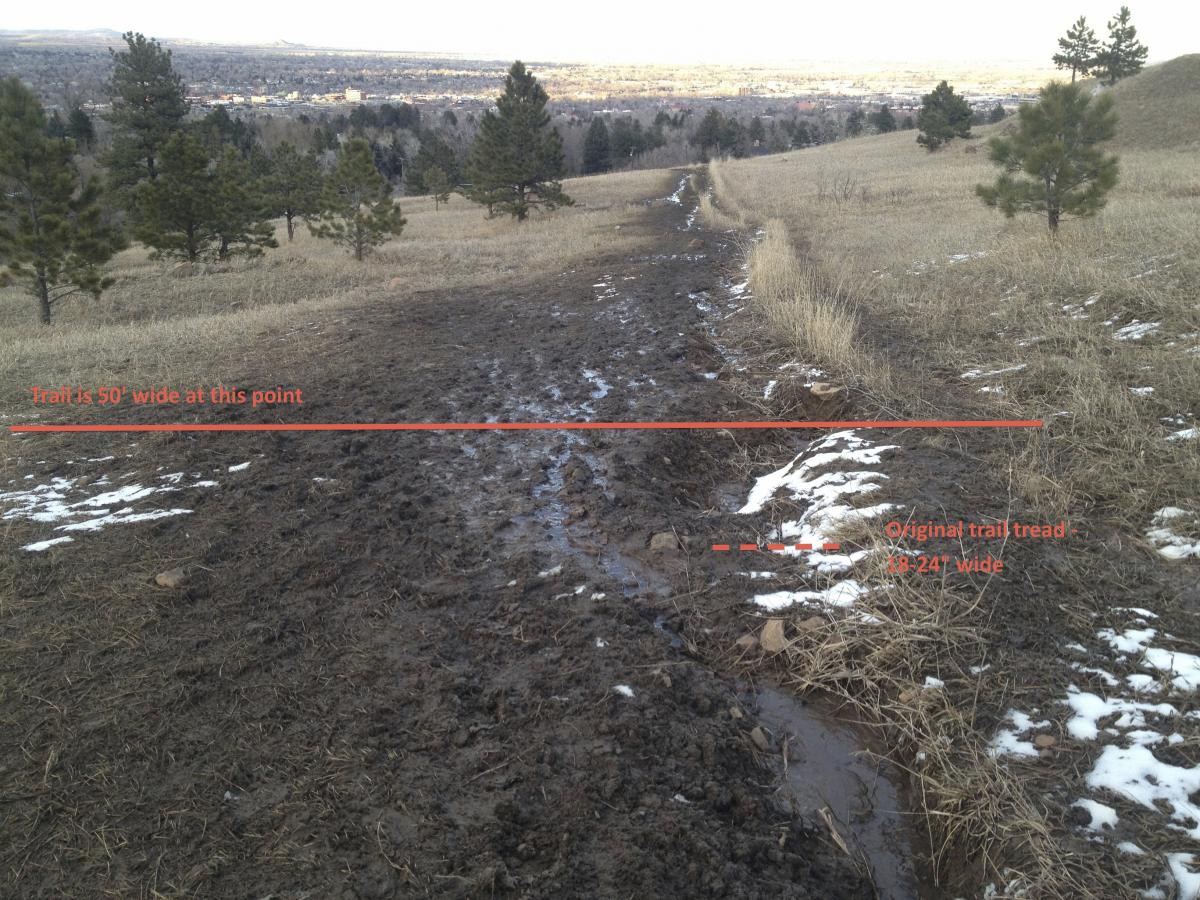Backwoods Ethics and Wilderness Ethics are two of my favorite books. These books, by Laura and Guy Waterman, helped shape my summer in 2002, and every day from that point onward.
Check out the Waterman Fund at http://www.watermanfund.org/
"Without some management, wildness cannot survive the number of people who seek to enjoy it," they write. "But with too much management, or the wrong kind, we can destroy the spiritual component of wildness in our zeal to preserve its physical side."
The books are here:
http://www.amazon.com/Backwoods-Ethics-Low-Impact-Camping-Edition/dp/088150257X
http://www.amazon.com/Wilderness-Ethics-Preserving-Wildness-Appreciation/dp/0881502561
These two books will change how you view both the back and front-country.
Monday, March 31, 2014
Sunday, March 30, 2014
Repost - Do you choose the right path?
I can't really add much to this post on the LNT.org website.
https://lnt.org/blog/do-you-choose-right-path
PS. Don't do this. Plan ahead and prepare! If you had waterproof shoes, you would never need to expand the path.
https://lnt.org/blog/do-you-choose-right-path
PS. Don't do this. Plan ahead and prepare! If you had waterproof shoes, you would never need to expand the path.
A Moral basis for wildlife conservation
Indonesia's top Muslim clerical body has issued a fatwa, or edict, against illegal wildlife trafficking.
This unprecedented step by the Indonesian Council of Ulama,
in the country with the world's largest Muslim population, declares
illegal hunting or illegal trading of endangered species to be haram (forbidden).
Key to the preservation of wildlife is the acceptance of the premise that they have intrinsic value, whether observed or not. This is a matter of some debate.
One of the principles of Leave No Trace is "Respect Wildlife". Whether or not you agree with the other tenets of the Muslim faith, there are those who do, and this guidance will hopefully help shape behavior in an area of the world undergoing massive change.
"Respect Wildlife" forms a basis of Leave No Trace ethics for a couple of reasons. First is a sort of quantum logic (http://en.wikipedia.org/wiki/Observer_effect_%28physics%29), whereby your observation (or killing) of the animal changes the animal, i.e. leaving a trace. Wild animals that come into contact with humans and fed or harassed change their behaviors, which has a ripple effect throughout the local food chain. A harassed fox might burn critical energy avoiding you, and miss it's next kill. Without food, its kits may starve. Without enough foxes, the rodents multiply, then die off because of overpopulation. Classic predator-prey response, except the human input into the equation forces the balance out of kilter.
The University of Michigan describes it thus: http://www.globalchange.umich.edu/globalchange1/current/lectures/predation/predation.html
But here's the graph showing the population swings.
So why is this important? Recall point 7 of the LNT ethics: Be Considerate of Other Visitors. Imagine that you have had an outdoor experience, but fed or harassed (or killed) a bunch of animals. What happens to the next person who wants to have that same experience?
Group of hikers rescued from Appalachian Trail
Five wet and cold female hikers were rescued off the Appalachian Trail on Wednesday morning after calling 911 for help.
"The hikers had a sleeping bag and a two-person tent with them. When they called for help, Willis said the sleeping bag was the only item they had that was dry. They said they were unable to get a fire started and couldn’t find any water, said Willis, who described them as novice hikers."
While it's obviously a good thing that no permanent harm was done to anyone, we have to examine what happened here. Did the existence of the cell phone offer a false sense of security? Did nobody check the weather?
The relative ease of access to the Appalachian Trail (or any of the backcountry locations on the East Coast) makes this sort of thing more likely.
Ultimately, rescuers had to head out in 50mph winds, at night, in the snow, to save the hikers. This isn't responsible. Plan ahead and prepare!
http://www.citizen-times.com/story/news/local/2014/03/26/5-hikers-rescued-overnight-on-appalachian-trail/6914875/
"The hikers had a sleeping bag and a two-person tent with them. When they called for help, Willis said the sleeping bag was the only item they had that was dry. They said they were unable to get a fire started and couldn’t find any water, said Willis, who described them as novice hikers."
While it's obviously a good thing that no permanent harm was done to anyone, we have to examine what happened here. Did the existence of the cell phone offer a false sense of security? Did nobody check the weather?
The relative ease of access to the Appalachian Trail (or any of the backcountry locations on the East Coast) makes this sort of thing more likely.
Ultimately, rescuers had to head out in 50mph winds, at night, in the snow, to save the hikers. This isn't responsible. Plan ahead and prepare!
http://www.citizen-times.com/story/news/local/2014/03/26/5-hikers-rescued-overnight-on-appalachian-trail/6914875/
Welcome
Welcome to Ed's Leave No Trace Blog.
The more I think about the seven principles of LNT, the more universally I can see them applied. I'm going to use this forum to link to, discuss, criticize and popularize things that I see in the world, relating them back to the seven core concepts.
The more I think about the seven principles of LNT, the more universally I can see them applied. I'm going to use this forum to link to, discuss, criticize and popularize things that I see in the world, relating them back to the seven core concepts.
Subscribe to:
Posts (Atom)
